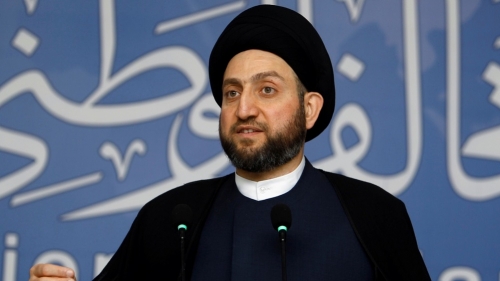
RNA - Speaking to the Arabic-language al-Sumaria television network after casting his vote on Saturday morning, Hakim said, “Any fraud in the elections would be condemned and unacceptable.”
He further called on Iraq’s Independent High Electoral Commission to probe into reports of pressures on voters to elect certain candidates.
“We should defer to the people’s will and (respect) their right to elect members of the parliament,” he added.
Polling stations opened in Baghdad and other cities on Saturday in the first parliamentary election since defeating Daesh. Whoever the new parliament chooses as prime minister will face an array of challenges after a three-year war against Daesh which cost the country about $100 billion.
The independent body overseeing the election is estimating high turnout because it comes amid a relative lull in terrorist attacks.
The electoral commission has said results will come hours after polls close. The Iraqi constitution sets a 90-day deadline for forming a government after the results are formally announced.
Despite relative calm across the country, security is already high nationwide as Baghdad says terrorists still pose a major security threat.
This is the fourth such polls since the 2003 US invasion.
According to Tasnim News Agency, the Saturday race features four main contenders: Prime Minister Haider al-Abadi, his predecessor Nouri al-Maliki, former transport minister Hadi al-Ameri, and former prime minister of the Kurdistan Regional Government (KRG), Barham Salih.
Prime Minister Abadi, who takes credit for the hard-fought battle against Daesh, appears marginally ahead.
Former premier Maliki, who was forced to step down after Daesh overran large swathes of country in 2014, still wields considerable influence.
847/940